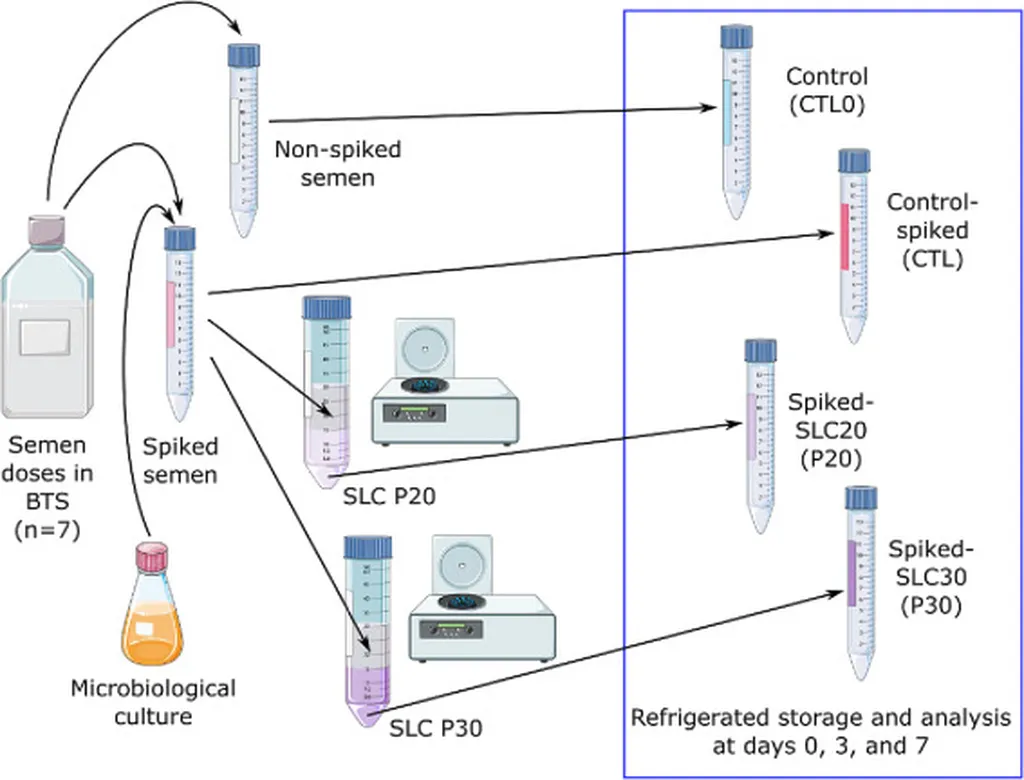In a significant stride towards enhancing the quality of frozen boar semen, researchers have demonstrated that a commercial colloidal centrifugation gradient can markedly improve the post-thawing quality of cryopreserved boar semen. This advancement, published in the Czech Journal of Animal Science, could have substantial implications for the agricultural sector, particularly in the realm of animal breeding and reproductive technologies.
The study, led by Francisco Sevilla from the Doctorado en Ciencias Naturales para el Desarrollo (DOCINADE) at the Instituto Tecnológico de Costa Rica, evaluated 15 ejaculates from five boars using two treatments: a control without colloidal centrifugation and a treatment with commercial colloidal centrifugation. The results were promising, with the gradient centrifugation treatment showing improved sperm motility and membrane destabilisation. “The proportion of morphologically normal sperm was higher in the gradient than in the control,” Sevilla noted, highlighting that 74% of spermatozoa retained normal morphology.
One of the critical findings was the reduction in lipid peroxidation in the colloidal centrifugation treatment. Malondialdehyde (MDA) levels, which indirectly measure lipid peroxidation, were significantly lower in the gradient treatment (16.4 ± 2.5 vs 22.3 ± 2.5 µmol/30 × 106 sperm; P < 0.05). This reduction suggests that the centrifugation process helps protect sperm cells from oxidative damage during the freezing and thawing process.The study also measured intracellular reactive oxygen species (ROS) and M540 positivity, but these did not differ significantly between the treatments at either time point. However, the overall improvement in sperm quality parameters post-thawing is a significant step forward. "The centrifugation process improved the quality parameters of frozen boar semen after thawing," Sevilla explained, underscoring the potential benefits for the agricultural industry.The implications of this research are far-reaching. For the agriculture sector, improving the quality of frozen boar semen can enhance the efficiency and success rates of artificial insemination programs. This, in turn, can lead to better breeding outcomes, increased productivity, and ultimately, higher economic returns for farmers. The use of colloidal centrifugation gradients could become a standard practice in semen cryopreservation, ensuring that the genetic material used for breeding is of the highest quality.Looking ahead, this research opens up new avenues for further investigation. Future studies could explore the optimal conditions for colloidal centrifugation gradients, the long-term storage stability of treated semen, and the potential application of this technique to other animal species. As Sevilla and his team continue to delve into these areas, the agricultural sector can look forward to even more innovative solutions that will shape the future of animal breeding and reproductive technologies.

